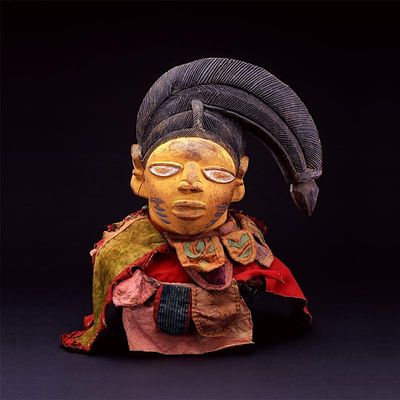 Join us for a panel discussion on art's role in activism against gendered violence with faculty from law, social sciences, and humanities.
Join us for a panel discussion on art's role in activism against gendered violence with faculty from law, social sciences, and humanities.About this Event
This panel, moderated by Professor Alicia Gaspar de Alba, honors Women’s History Month and remembers the femicides in Ciudad Juárez, Mexico. Panelists, including Professor Hannah Gary and artists Judithe Hernandez and Alma Lopez, will discuss art's role in activism against gendered violence. Faculty from law, social sciences, and humanities will respond.
This panel, moderated by and held in conjunction with Professor Alicia Gaspar de Alba’s UCLA research seminar of the same name, revisits the over 30-year crime wave of femicides/feminicidios—the kidnappings, serial sex crimes, and horrific murders of poor young Mexican, Central American, and indigenous women and girls—in Ciudad Juárez, Mexico, across the border from the professor’s hometown of El Paso, Texas. Looking at the representations of these femicides in art and literature, the panelists, including UCLA’s Professor of Law Hannah Gary and artists Judithe Herandez and Alma Lopez, will discuss the uses of art as activism to raise consciousness about this continuing lethal gendered violence that has already claimed the lives of thousands of innocent women and girls on the U.S.–Mexico border. Invited UCLA faculty in law, social sciences, and the humanities will serve as respondents in this two-part discussion.
This program is co-sponsored by the César E. Chávez Department of Chicana/o Studies and The Promise Institute for Human Rights
Originally from the El Paso–Juárez border, Alicia Gaspar de Alba is a founding faculty member and professor in the César E. Chávez Department of Chicana/o and Central American Studies. She has published 13 books, among them award-winning novels, collections of short fiction and poetry, and academic texts. She started researching the Juarez femicides in 1998 and in 2003, hosted a two-day international conference on the subject at UCLA. For more about her work see https://aliciagaspardealba.net. See also desertblood.net.
Professor Hannah R. Garry is executive director of The Promise Institute for Human Rights at UCLA Law. She is a scholar and practitioner of international criminal law, transitional justice, and refugee law, with over 15 years of teaching at CU, USC, and UCLA Law. A former U.S. Fulbright Scholar, she has served as a research consultant with Oxford and received USC’s Mellon Award for Faculty Mentoring. With nearly 20 years of experience as a senior legal adviser, she has worked on genocide and crimes against humanity cases before international tribunals, including the ICC and U.S. Supreme Court. Recently, she testified before the ICC, UN Human Rights Committee, and UK Parliament. She serves on advisory boards for the USC Shoah Foundation, Clooney Foundation, and Human Rights Watch, and is a member of ASIL’s Executive Council.
Judithe Hernández, a trailblazing Chicana artist, rose to prominence in the 1970s as a member of Los Four, the influential Chicano art collective central to the Chicano Art Movement. After graduating from Otis Art Institute, she became known for her murals advocating social justice, including collaborations with César E. Chávez and the United Farm Workers, as well as community projects in East Los Angeles. Influenced by her mentor Charles White, Hernández embraced social realism and developed a deep commitment to drawing. Over her five decades-long career, her work has been widely exhibited and acquired by institutions such as MoMA and LACMA. In 2024, her artistic contributions were honored with a major retrospective at the Cheech Marin Center, solidifying her legacy as a pivotal figure in Chicano art and beyond.
Alma López, dubbed the “Digital Diva” by UCLA’s La Gente Newsmagazine in 1999, is a visual and public artist known for her innovative digital photo-based series, Lupe and Sirena. This work reimagines colonial Mexican icons through a radical Chicana feminist lesbian lens, addressing themes of identity, gender, and activism. Her renowned piece, Our Lady, sparked national debate and became the centerpiece of the book Our Lady of Controversy: Alma López’s “Irreverent Apparition”, which she co-edited with her spouse, Professor Alicia Gaspar de Alba. López’s work has been featured in over 100 exhibitions across the United States, Mexico, and Europe. A visiting lecturer at UCLA, she teaches courses on Chicana/Latina and queer art, while continuing to advocate for LGBTQ and feminist causes through her art and activism.
Images (L to R): Alma Lopez, La Llorona Desperately Seeking Coyolxauhqui, 2003; serigraph; Judithe Hernandez, Juarez Coyolxauhqui, 2008; pastel on paper
Event Venue
The Fowler Museum at UCLA, 308 Charles E Young Drive North, Los Angeles, United States
USD 0.00












